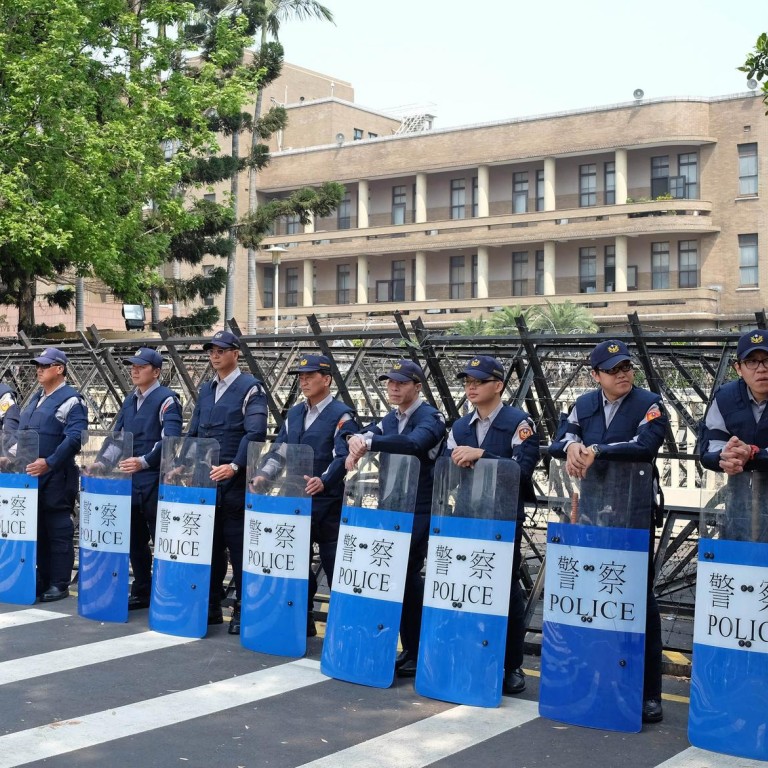
Anti-trade pact stand-off will damage Taiwan's relations with mainland China, analysts warn
Student protest over trade pact and their occupation of parliament may cause Beijing to rethink their policy towards island, analysts say
The stand-off in Taiwan over a trade pact with mainland China will jeopardise improving cross-straits relations and cast a shadow over the prospects for long-anticipated political talks between leaders in Taipei and Beijing, according to analysts.
The trade pact was originally an economic sweetener offered by Beijing to help engage with Taiwan, but if the move backfires the central government may review its strategy, they said.
“The demonstrations against the service trade pact will inevitably overshadow co-operation in the future and make any highly-anticipated political talks more remote than previously thought,” said Sun Li, a professor at Xiamen University’s Institute of Taiwan Studies.
...the radical action and the violence inflicted have not only done damage to island’s image as an increasingly mature democracy, but also jeopardised something far more critical, future co-operation with the mainland
Sun said Beijing had tried hard and made concessions to Taiwan to help the island’s economy, but the government was not winning the hearts and minds of some Taiwanese.
Xu Xue, also from Xiamen University’s Institute of Taiwan Studies, said the protests had dealt a serious blow to efforts to thaw ties between the two former adversaries.
“Seeking to block approval of this agreement, the radical action and the violence inflicted have not only done damage to island’s image as an increasingly mature democracy, but also jeopardised something far more critical, future co-operation with the mainland,” said Xue.
Lin Wen-cheng, director of the Sun Yat-sen University’s Institute of Mainland China Studies in Taiwan, said Beijing’s tactics towards the island had backfired and it needed to review its policy.
Lin also said Ma was under pressure to withdraw the pact his government signed with Beijing, a move likely to further strain relations with the central government.
A further concern was that any moves towards high-level political dialogue between Beijing and Taipei are likely to be even more controversial in Taiwan than any business and trade pacts, said Lin.
Jean-Pierre Cabestan, head of the political science department at Hong Kong Baptist University, said he believed the mainland was highly concerned about the protests in Taiwan.
“What Beijing is afraid to see is their dialogue with the governing Kuomintang in Taiwan, which has so far been very successful, is reaching it’s limit,” Cabestan said.
Xu at Xiamen University’s Institute of Taiwan Studies said Beijing would adopt a wait-and-see approach to see if the protests had created irreparable damage to relations with the mainland.
Political ties have improved markedly since President Ma Ying-jeou came to power pledging to thaw relations with Beijing.
But the confrontation does appear to represent growing anxiety among some Taiwanese over the steadily improving political ties with the mainland, said Xu.
Additional reporting by Andrea Chen

